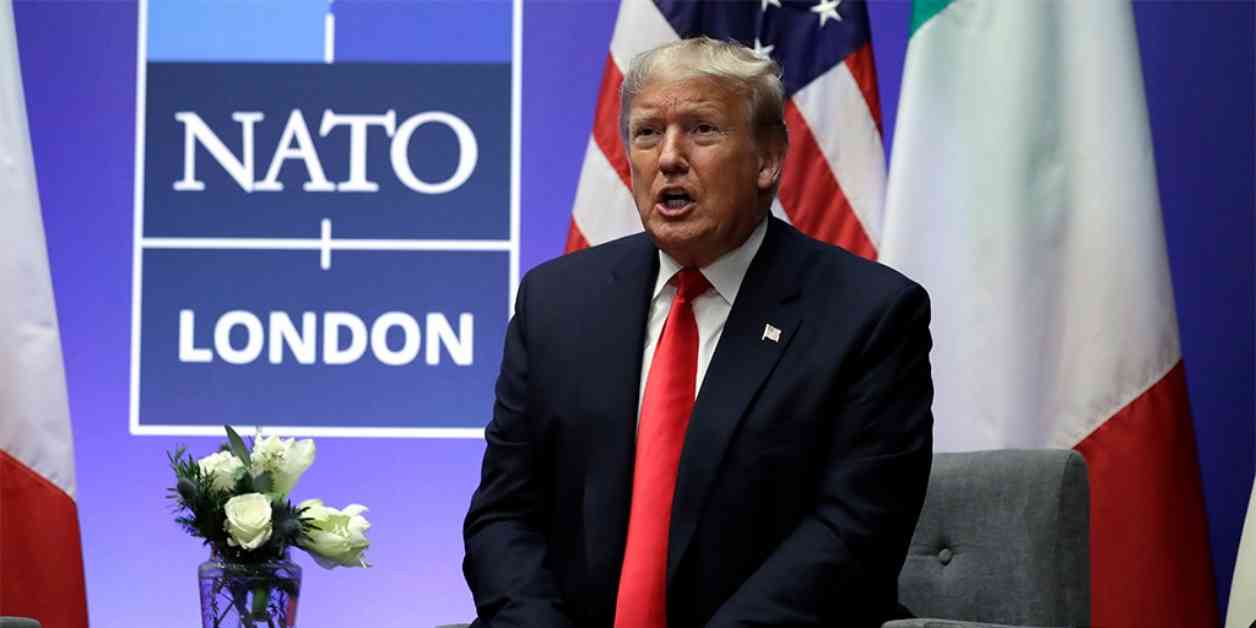NATO Leaders Discuss Defense Spending Amid Rising Tensions
A group of NATO leaders gathered on Sunday to address the pressing issue of defense spending in the face of escalating tensions in Europe. With Russia posing a significant security threat in the region and the looming transition to a new U.S. administration, the leaders emphasized the need for increased investment in defense resources.
Greek Prime Minister Kyriakos Mitsotakis highlighted the necessity of moving beyond the previous standard of allocating 2% of a nation’s GDP to defense, stating that it was time to consider a higher figure. However, the specifics of the proposed increase were left unclear, pending further discussions with the incoming U.S. president.
Trump Administration’s Stance on Defense Spending Shifts
The summit attendees were queried about a report suggesting President-elect Donald Trump’s intention to raise NATO’s defense spending requirement from 2% to 5%. This significant hike would demand substantial financial commitments from all member countries, including the United States, which currently exceeds the 2% threshold.
While the Trump transition team refrained from providing a definitive response on the matter, a spokesperson highlighted the president’s belief in fair burden-sharing among NATO allies. The emphasis was placed on European nations fulfilling their defense obligations, reflecting a desire to restore peace and strengthen American global influence.
Challenges and Uncertainties Surround Defense Policy
Despite acknowledging Russia as the primary security concern facing Europe, NATO leaders expressed caution in navigating the uncertainties associated with the incoming Trump administration. The need for a clear understanding of the new U.S. president’s intentions regarding defense policy was underscored to ensure effective collaboration within the alliance.
Individual leaders, including Italian Prime Minister Giorgia Meloni and Finnish Prime Minister Petteri Orpo, emphasized the importance of bolstering European defense capabilities to reduce reliance on external support. The imperative of demonstrating a collective commitment to defense was highlighted as a means to reinforce transatlantic partnerships and promote regional security.
NATO Allies Evaluate Defense Budgets Amid Geopolitical Pressures
Following Russia’s military incursion into Ukraine, NATO allies have been reevaluating their defense budgets to address evolving security challenges. By 2024, an increasing number of member nations had met or exceeded the 2% GDP spending target, signaling a renewed commitment to strengthening collective defense capabilities.
While notable progress has been made in enhancing defense expenditures, several countries, including Croatia, Portugal, and Italy, are yet to meet their financial commitments. The diverse spending patterns across NATO members underscore the complex dynamics shaping defense policy and underscore the ongoing efforts to navigate geopolitical uncertainties.
As global security threats continue to evolve, the imperative of sustained investment in defense resources remains paramount for NATO allies to safeguard regional stability and uphold collective security commitments. The ongoing dialogue among leaders reflects a shared commitment to addressing emerging challenges and reinforcing the alliance’s resilience in an increasingly unpredictable geopolitical landscape.


